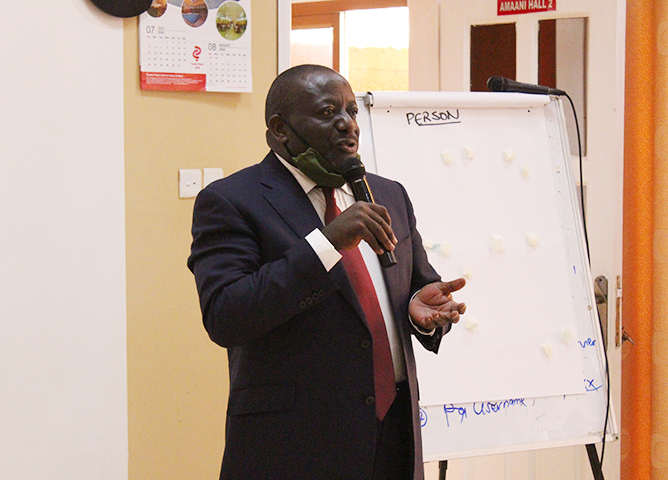5G network far from reality in Africa - experts
Nov 13, 2020
This, according to experts, is because most countries in Africa are not yet prepared for the technology due to consumers’ inability to pay for fast but expensive data services and 5G-capable devices.

While global smartphone manufacturers continue to produce fifth-generation (5G) enabled smartphones as countries race to deploy the wireless technology, it will take a while before such phones can be shipped to Africa.
This, according to experts, is because most countries in Africa are not yet prepared for the technology due to consumers' inability to pay for fast but expensive data services and 5G-capable devices.
The Infinix Senior Product Consultant, Solomon Semuyaba, said that despite the introduction of 5G globally, the African market is not ready for it and that it will take not less than five years for such technology to start making some inroads on the continent.
According to Semuyaba, the trend is going to be maintained at the current 3G connectivity and 4G, which telecommunication companies are still struggling to popularise.
It should be noted that even after many years, 4G adoption is only still in its early stages on the continent, with only about 7% of the about 774 million mobile connections in Africa being 4G. This is way lower than the 44% global average.
Older technologies including 2G and 3G have continued to dominate the African market, including in Uganda.
"There is not going to be any 5G smartphone produced or shipped to the African market for now. This will take time because the equipment for such network is still very expensive. No company will invest in that now given that even the 4G coverage is not yet good," Semuyaba said on the sidelines of the launch of the Infinix Note 8 smartphone in Kampala, recently.

According to the Global System for Mobile Communications Association (GSMA), the 5G infrastructure is also very expensive; it predicts that companies globally will spend around $1 trillion over the next five years to upgrade to 5G.
This does not make business sense for companies to invest such huge sums of money where they are going to take so many years to reap the benefit.
While MTN Uganda, in partnership with ZTE launched the 5G Standalone network in East Africa during the Experience the Future Together event in January this year, the MTN Group chief executive officer, Rob Shuter, said that while the telecom had started testing the technology in some markets in Africa, it will be used for very specific cases.
He noted that most subscribers' phones work well on just 3G.
Low cost smartphones to continue flooding Africa
According to Semuyaba, low cost smartphones will continue to flood the African market as they are considered affordable to most Africans.
The director Uganda Communications Universal Service and Access Fund, Nyombi Thembo, also recently said that low cost smartphones are critical for digital inclusion to take shape in Uganda.
He explained that digital literacy, connectivity, access to affordable devices and relevant content should go hand-in-hand to boost digital inclusion, which he said is still very low in Uganda.
Low-end smartphone manufacturers including Infinix, Tecno and Huawei, among others, have gained prominence on the African continent over the years due to producing low cost but high quality devices.
They are currently competing on introducing competitive devices that appeal to the ordinary person.
For instance, Infinix's Note 8 smartphone, despite having high-cost technology, goes for sh782,000.
